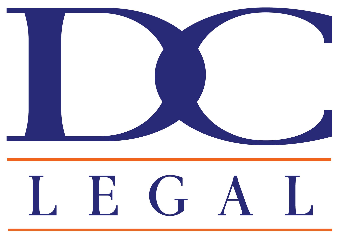Questions & Answers
Estate Planning | Real Estate | Business LawWhat is a health care directive?
A Health Care Directive is a legal document that instructs others about your medical care in the event that you become unable to make decisions on your own. It becomes effective only under the circumstances described in the document, and allows you to appoint a health care agent (a “durable power of attorney for health care”) and/or prepare specific instructions for your future health care (such as a “living will”).
Learn MoreWhy do I need Medicaid planning?
Medical care and long-term care can quickly and easily drain a family of all their assets. Asset protection for seniors is becoming more critical as people are living longer, suffering from more debilitating diseases, and needing more long-term care than ever before. Understanding Medicaid and how such state and federal assistance works can be an overwhelming task during a stressful time for any family. In fact, most families will needlessly spend down their life savings on nursing home expenses.
Learn MoreWhat is a short sale?
A short sale is a real estate transaction in which the homeowner sells the property for less than the balance owing on the mortgage. Short sales are often considered by homeowners who owe more on their mortgage than their homes are worth. Short sales are complex transactions that involve numerous issues and consequences.
Learn MoreWhat is foreclosure?
Foreclosure is the legal process that occurs when a lender repossesses a home because the homeowner has stopped making their monthly mortgage payments.
Learn MoreWhere can I find more information about the Washington State Foreclosure Fairness Act?
- Read the press release here.
- Visit the Department of Commerce website.
- For more information on foreclosure prevention, avoiding foreclosure rescue or loan modification scams and alternatives to foreclosure, visit www.dfi.wa.gov.
What are the various Washington State business structures?
You may operate your business under any one of several business structures in Washington State. Each type of structure has advantages and disadvantages that should be considered. The descriptions of the structures below are provided to assist applicants and are not intended to be legal definitions with the force of law. You should contact an attorney, accountant, financial advisor, banker, or other business or legal advisors to determine which form is most suitable for your business or organization.
- A Sole Proprietorship is one individual or married couple in business alone. Sole proprietorship’s are the most common form of business structure. This type of business is simple to form and operate, and may enjoy greater flexibility of management and fewer legal controls. However, the business owner is personally liable for all debts incurred by the business.
- A General Partnership is composed of two or more persons (usually not a married couple) who agree to contribute money, labor, and/or skill to a business. Each partner shares the profits, losses, and management of the business and each partner is personally and equally liable for debts of the partnership. Formal terms of the partnership are usually contained in a written partnership agreement.
- A Limited Partnership* is composed of one or more general partners and one or more limited partners. The general partners manage the business and share fully in its profits and losses. Limited partners share in the profits of the business, but their losses are limited to the extent of their investment. Limited partners are usually not involved in the day-to-day operations of the business. Note: A limited partnership may opt to become a Limited Liability Limited Partnership* by including a statement to that effect in its certificate of limited partnership. Status as a limited liability limited partnership provides general partners with a shield from liability for obligations of the limited liability limited partnership.
- A Limited Liability Partnership* is similar to a General Partnership except that normally a partner does not have personal liability for the negligence of another partner. This business structure is used most commonly by professionals such as accountants and lawyers.
- The Limited Liability Company (LLC)* An LLC is formed by one or more individuals or entities through a special written agreement. The agreement details the organization of the LLC, including: provisions for management, assignability of interests, and distribution of profits or losses. Limited liability companies are permitted to engage in any lawful, for profit business or activity other than banking or insurance. Doing business as an LLC may yield tax or financial benefits.
- A Corporation* is a legal entity, a corporation has certain rights, privileges, and liabilities beyond those of an individual. Doing business as a corporation may yield tax or financial benefits, but these can be offset by other considerations, such as decreased personal control. Corporations may be formed for profit or nonprofit purpose.
- A Nonprofit Corporation* A nonprofit corporation is a legal entity and is typically run to further some sort of ideal or goal, rather than in the interests of profit. Many nonprofits serve the public interest, but some do engage in private sector activities. If your nonprofit organization is or plans to fundraise from the public, it may also be required to register with the Charities Program of the Washington Secretary of State.
Note: Items marked with * must register with the Secretary of State, Division of Corporations and Charities.
Learn More

